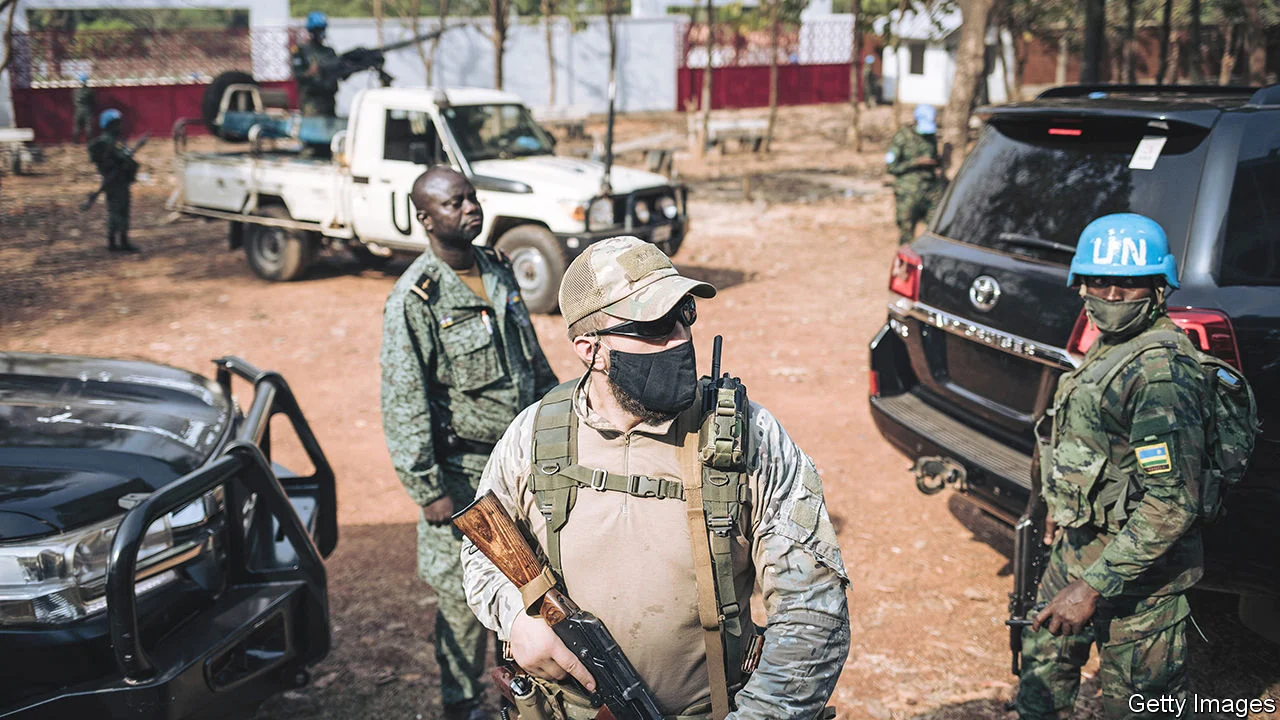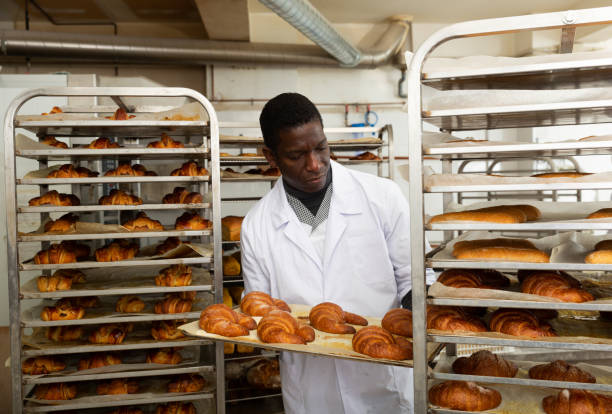From Russia to Africa: Understanding the Influence of the Wagner Group on the Continent
From Russia to Africa: Understanding the Influence of the Wagner Group on the Continent
From the frosty lands of Russia to the sun-soaked plains of Africa, a shadowy force known as the Wagner Group has been making waves across the continent. But who are they? And what is their true influence on this vast and diverse landmass? Join us as we embark on a thrilling journey to unravel the mysteries surrounding these enigmatic mercenaries, delving deep into their covert operations and examining their impact on African politics. Brace yourself for an eye-opening exploration that will challenge your perceptions and shed light on a hidden power shaping Africa’s destiny – welcome to our captivating investigation into “From Russia to Africa: Understanding the Influence of the Wagner Group on the Continent.”
Introduction to the Wagner Group
The Wagner Group is a Russian paramilitary organization that has been active in a number of countries, including Libya and the Central African Republic. The group is named after its founder, Dmitry Utkin, who served as a colonel in the Russian Army before starting the organization.
The Wagner Group has been linked to a number of controversies, including the death of three Russian journalists in Central African Republic in 2018. The group has also been accused of carrying out mercenary activities on behalf of the Russian government.
While the full extent of the Wagner Group’s influence is not known, it is clear that they have had an impact on events in Africa. The group’s involvement in Libya has helped to prolong the country’s civil war, while their presence in the Central African Republic has added to instability in an already fragile state.
Origins of the Wagner Group in Russia
The Wagner Group is a Russian private military company (PMC) that has been active in several conflict zones across the world, including Africa. While the group’s origins are murky, it is believed to have been founded by Dmitry Utkin, a former Russian intelligence officer. The group is thought to be funded by Yevgeny Prigozhin, a close ally of Russian president Vladimir Putin.
Wagner first came to prominence in 2015, when it was revealed that the group had been operating in Ukraine. The group was accused of fighting on behalf of the Russia-backed separatist rebels in the country’s east. Wagner has also been active in Syria, where it is believed to have played a role in propping up the Assad regime.
In recent years, Wagner has increasingly turned its attention to Africa. The group is thought to have operated in Libya, Mali, Sudan, and other countries on the continent. There have even been reports that Wagner operatives were involved in training fighters for an attempted coup in Madagascar.
While the full extent of Wagner’s activities in Africa is not yet known, it is clear that the group has become a major player on the continent. And with reports suggesting that Wagner may be expanding its operations into other regions, such as Latin America, it seems likely that we will be hearing more about this shadowy PMC in the future.
Expansion of the Wagner Group into Africa
Since its establishment in 2014, the Wagner Group has been involved in a number of military operations and contracts in Africa. The most notable of these was their involvement in the Libyan Civil War, where they were hired by the Libyan National Army to provide military support. In recent years, the Wagner Group has expanded its operations into other countries on the African continent, including Sudan, Chad, Mozambique, and the Central African Republic.
The Wagner Group’s expansion into Africa is part of a wider trend of Russian private military companies (PMCs) becoming more active on the continent. While there are a number of reasons for this, experts believe that it is largely due to the growing presence of Russian interests and influence in Africa. For instance, Russia has made significant investments in energy projects across Africa, and has been working to increase its economic ties with a number of African countries. In addition, Russia has been strengthening its political and military relationships with a number of African nations.
The Wagner Group’s expansion into Africa highlights Russia’s growing influence on the continent. While the full extent of the Wagner Group’s activities on the continent is not yet known, it is clear that they are playing an increasingly important role in supporting Russian interests in Africa.
Activities and Impacts of the Wagner Group in Africa
The Wagner Group is a Russian military contractor that has been active in Africa in recent years. The group has been linked to a number of activities and impacts on the continent, including:
-Providing training and support to various African militaries, including the Central African Republic, Sudan, and Angola.
-Being involved in combat operations in Libya and Syria.
-Conducting intelligence gathering and other clandestine activities in a number of countries, including Kenya, Mozambique, and South Africa.
-Establishing close ties with some of Africa’s most notorious strongmen, such as Zimbabwe’s Robert Mugabe and Angola’s Jose Eduardo dos Santos.
The Wagner Group’s activities have drawn criticism from many quarters, with some accusing the group of being a tool of Russian foreign policy and of exacerbating conflict and instability in Africa. However, there is no doubt that the group has had a significant impact on the continent in recent years.
Criticisms of the Wagner Group in Africa
Since its inception, the Wagner Group has been embroiled in controversy and accused of various human rights abuses. In Africa, the group has been criticized for its involvement in the conflict in the Central African Republic, as well as its alleged ties to former President of Sudan Omar al-Bashir.
In the Central African Republic, the Wagner Group has been accused of carrying out a campaign of violence and terror against the civilian population. Human rights groups have documented numerous instances of summary executions, arbitrary detentions, and torture carried out by Wagner Group operatives. The group has also been accused of forcibly recruiting children into their ranks.
In Sudan, the Wagner Group was allegedly involved in providing military support to then-President Omar al-Bashir during his time in power. Bashir is now wanted by the International Criminal Court for crimes against humanity and genocide. It is believed that the Wagner Group helped train and arm Sudanese security forces that were responsible for carrying out mass atrocities against civilians during Bashir’s rule.
International Reactions to the Wagner Group’s Presence in Africa
Since the Wagner Group’s presence in Africa has been linked to Russian interests, many international observers have been critical of Russia’s involvement on the continent. Some have accused the Wagner Group of acting as a “mercenary force” for the Russian government, and others have raised concerns about the potential for further destabilization in Africa if the group continues to operate there.
In response to these criticisms, the Russian government has defended its involvement in Africa, arguing that the Wagner Group is providing valuable assistance to countries like Sudan and Mozambique that are struggling to maintain security. Russia has also pointed to its own history of military intervention in Africa, such as its support for Ethiopia during the Ogaden War, as evidence that it is not seeking to destabilize the continent.
Critics of Russia’s involvement in Africa argue that the Wagner Group’s presence represents a new form of colonialism, with Russia exploiting African countries for their own gain. They also worry that the group’s activities could lead to an escalation of violence in regions where it is operating.
Alternatives to the Wagner Group’s Actions and Influence in Africa
The Wagner Group is a Russian private military company that has been increasingly active in Africa in recent years. While the group’s activities have been largely beneficial, there have been some instances where their actions have not been well received.
There are a number of alternative groups that can provide similar services to the Wagner Group in Africa. Some of these groups are African-based, while others are international.
African Private Military Companies: There are a number of private military companies based in Africa that could provide similar services to the Wagner Group. These companies include Executive Outcomes, STTEP International, and Blackwater Security Consulting.
International Private Military Companies: There are also a number of international private military companies that operate in Africa. These companies include DynCorp International, G4S Secure Solutions, and AEGIS Defense Services.
African Union Peacekeeping Forces: The African Union has its own peacekeeping forces that could be used to intervene in conflicts on the continent. These forces are known as the African Standby Force and have been deployed in a number of conflicts, including the Darfur conflict and the Lord’s Resistance Army insurgency.
UN Peacekeeping Forces: The United Nations also has its own peacekeeping forces that could be used to intervene in conflicts on the continent. These forces are known as the UN Peacekeeping Forces and have been deployed in a number of conflicts, including the Congo conflict and the Somalia civil war.
Conclusion
The Wagner Group’s influence in Africa has been far-reaching and has impacted the continent in a myriad of ways, from military training to economic investments. While there are many benefits associated with their presence, it is essential that countries exercise caution when engaging with private military companies like the Wagner Group. It is only through effective regulation and oversight that we can ensure this powerful force does not overstep its bounds or damage fragile ecosystems found throughout the African continent.








Comments are closed.